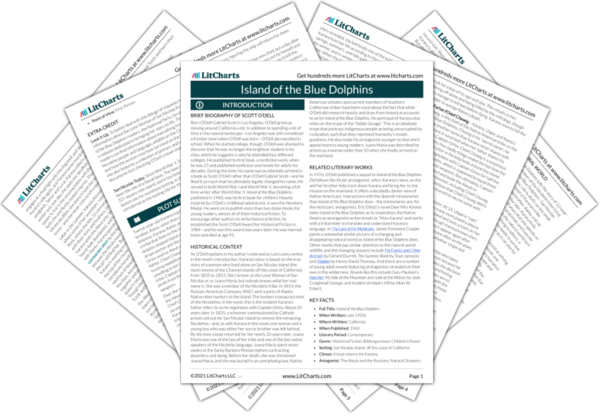AI ToolsNew
Tools to make learning and teaching easier
|
Previous
Chapter 16
|
Island of the Blue Dolphins: Chapter 17 Summary & Analysis |
Next
Chapter 18
|


Upgrade to unlock the analysis and theme tracking for all of Island of the Blue DolphinsIsland of the Blue Dolphins!
Get LitCharts A+